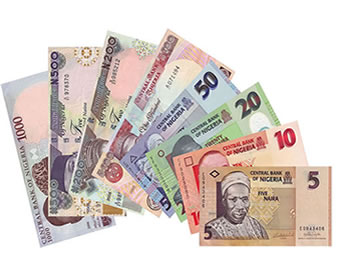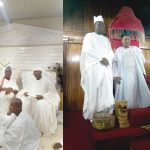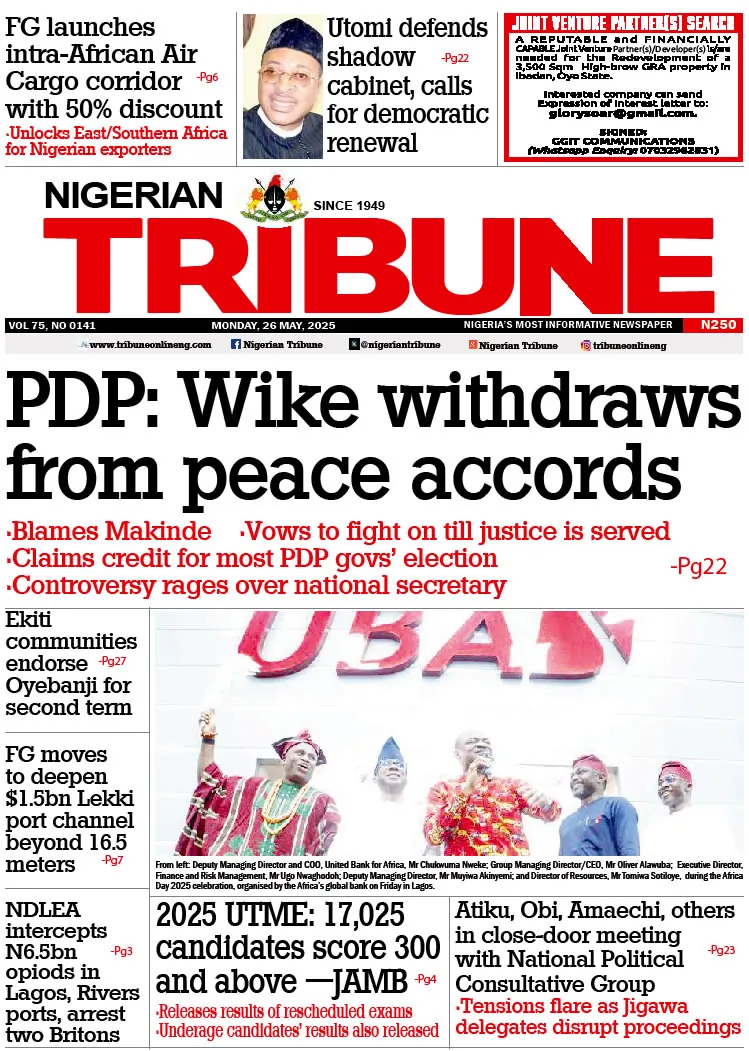THE Christmas and New Year festivities were unequivocally interesting in the definition of recession within the Nigerian context. These two celebrations are most especially observed in the Southern part of Nigeria, hence the reflections on their effects of the recession and vice versa. Every Nigerian believes that things are hard and that money is not flowing in the land. The cost of everything that must be purchased with money has gone up over 100 per cent. Businesses, especially the petty ones, are not booming. Rents, food items, school fees, electrical appliances and social amenities have increased. Apart from Abuja and just few major cities, not the suburbs of the cities, prices of petrol, gas and kerosene are much higher than the government deregulated prices. In particular, kerosene is sold up to N400 per liter. Unfortunately, the salaries of civil servants have remained static on account of recession, though the price of crude oil at the international market is improving.
Everybody in the country has one story to tell about how the economic hardship has shaped him or her. Despite the fact that the new fiscal meltdown has taught Nigerians lessons, the festival periods had exclusive entertainment and splendor. And for those who had not visited their villages for over one year, investigations showed that cost of materials and food items are higher than in cities. So those who got the information bought nearly everything required for the festivals and took them home. Some had to also buy their livestock from the cities, kitchen utensils and wears too.
Unlike during previous home-going for the celebrations, travelers carried bags of rice, cartons of frozen foods and drinks. Some who traveled on their private cars bought their rams and canned juice from the cities. On the other hand, many citizens celebrated the occasions without slaughtering animals. Some opted for iced fish. Some others initiated the plan to contribute amongst themselves to buy an animal to slaughter and let the day pass. The irony of these celebrations is that while people claimed the condition was hard, the markets and roads were busier than ever.
As from 15th December 2016, the major link roads between the south and Abuja and that of Lagos were shocked up. I had cause to travel on the 21st of December and saw what I saw on the Abuja-Lokoja-Enugu road.
Transportation fare was already as high as N10,000 for a journey that was half that price during the ordinary period. Investigations revealed that those who traveled a day before the Xmas paid N15, 000 and above, though some corporate transport companies including Peace Mass Transit saved the situation a bit by charging N9,200. This happened despite the fact that there was no increase in fuel price or scarcity of the commodity.
Nonetheless, the Abuja-Lokoja road which has never been completed since its award to three construction companies by the Olusegun Obasanjo administration witnessed great vehicular movement. This very important road to Southern citizens needs to be completed. The traffic was terrible day by day. It was worst on the 23rd and 24th days of the month. I was quite shocked by the large number of mobile machines on the road. I wondered where the vehicles were coming from amidst the recession the country is said to be experiencing. Most private vehicles were overloaded; thanks to the leniency of the Federal Road Safety Corps (FRSC) during the period. The decision of the agency to allow free flow of travelers without strict restriction and faultfinding during the period is commendable.
By 27th December when I was coming back to Abuja, I was surprised that the traffic was also terrible along the same roads. I then realised the fact that many people who do not celebrate the Xmas, travel after the 25th to celebrate the New Year. In fact, many people prefer the New Year celebrations nowadays. This makes transportation to remain high throughout the two festive periods, say from 15th December to January 15th of the subsequent year. It may be understandable from the angle that for Xmas, transporters come from the South virtually with empty buses to meet up with the demand in the cities. That is the situation after the New Year celebration when vehicles leave the cities to the south empty to bring back people from their villages.
Unfortunately, citizens who travel within these periods to the South suffer untold hardship; not the people who celebrate and are used to the trend. Vehicles, including those of corporate companies carry excess luggage and subject passengers to suffering. Some of the vehicles used to break down halfway and passengers are left to their fate. Furthermore, despite the recession and ‘hard merry Xmas’, some observations baffled me. Investigations also showed that people, unlike during previous festivities, did not sell their used cars to celebrate. Some automobile engineers popularly called mechanics even complained that they did not get enough customers like before.
Moreover, amidst the perceived recession, drink joints were very lively throughout the festive periods. It is clear that breweries do not witness the impact of recession because owners of drink points made their gains. It is noticed that such business thrives only in the Southern part of Nigeria. It has also been argued that the business thrives more in the South-East geopolitical zone of the country. Statistic analysis showed that the amount of money which revelers spend on drinking would have turned around the fortunes of the Igbo if dedicated to individual development. This makes one wonder how a rational citizen would deposit part of the monthly earning on drinking. Some fathers would prefer to satisfy their drinking urge and starve their families. This attitude is often common during these festive periods. Some towns in the zone are renowned to be the highest consumption spots for alcoholic drinks where billions of naira are said to be spent yearly on different brands of such drinks. During the festivities, people carried out burials and marriages. In short that the duo is what mainly takes some people home. Because such journeys are capital intensive thus being ignored, people fix their burial and marriage ceremonies to attract city-dwellers. These are two ceremonies that are also rated high in the southern part of Nigeria. They are the events that attract true lovers and admirers.
- Ajah writes in from Abuja






